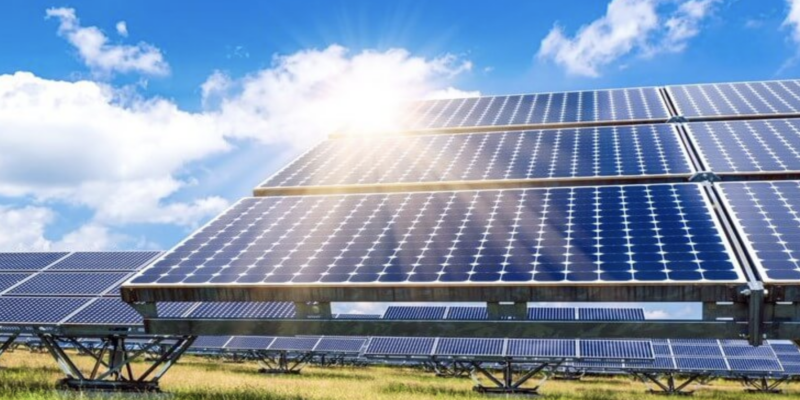State lawmakers at the end of the 2022 legislative session passed a controversial solar bill that would make it harder for families to recoup their investment in rooftop solar panels, if Gov. Ron DeSantis (R-FL) signs it into law. Reasons opponents have criticized the bill is that it conflicts conservative principles like free choice and energy independence. The language was backed by Florida Power & Light but received strong backlash from solar workers in Florida.
The bill’s sponsors, Republicans Sen. Jennifer Bradley and Rep. Lawrence McClure, claim it is necessary to address a growing cost shift that causes non-solar customers to pay a greater share of overall grid costs, but solar workers say that cost shift is a myth. No studies have been completed on the costs and benefits of rooftop solar in Florida.
Some have claimed the legislation restricts, and could ultimately eliminate, a 2008 law related to a policy called net metering, which allows homeowners to receive a credit for the excess energy they produce and send back to the grid. One provision added to the bill late in the legislative session would also allow private utility companies to increase customer bills to make up for lost revenue from individuals who offset their electricity bills with rooftop solar.
“When a small business or homeowner makes the personal choice to use their own money to install rooftop solar panels, they should be able to reap the benefits of an infinite and free energy source,” said George Riley, Florida Director for Conservatives for Clean Energy, in a letter to Gov. DeSantis urging him to veto the bill. “Net metering is a key element of these benefits, and the legislation would effectively punish them for exercising their free choice.”
While solar has historically been considered a talking point among progressives, more and more Republicans have become vocal advocates for solar and conservative groups and workers in Florida have been among the most outspoken critics of the legislation.
Nathan Traynor, a solar worker from Central Florida, says he feels, “betrayal,” by the legislation and sees it as a conflict with the Republican-led philosophy to stand up to special interest policies.
"Conservatives are supposed to stand up against special interest policies. I voted for Trump and DeSantis. This isn’t what we expected from Republican leaders at all, it’s a betrayal,” said Traynor of Castaways Energy. “This bill will cost the industry jobs. We’re already hearing customers pull back on solar installations due to all this uncertainty about the future.”
The rooftop solar industry supports more than 40,000 jobs in Florida and generates an estimated $18.3 billion in economic opportunity.
"Rooftop solar creates thousands of jobs for Florida families each year. As a longtime activist in the GOP, I can tell you that there is no more Republican form of energy than local, rooftop solar,” said Tyson Grinstead, a solar industry worker who served as a National Delegate for Donald Trump and testified against the legislation during session. “Customers, who are active voters, with solar can take a proactive step to help bring their families power bills and reduce our country's dependency on foreign oil at the same time. It's a no brainer."
According to a recent poll by Conservatives for Clean Energy, 86% of Florida voters believe Gov. DeSantis should veto the legislation.
At the same time rooftop solar is in hot water. The same poll found that 84% of respondents were also concerned with their utility bills increasing over the next year.
In Northeast Florida, hundreds of residents have protested rising electric bills or filed complaints with state regulators. This comes after utilities requested approval for the largest rate increase in Florida history.
Congressman Matt Gaetz has repeatedly weighed in on the impact increasing bills have on his Panhandle constituents. While Congress does not control utility rates, he is vowing to present to the Florida Public Service Commission and provide answers to constituent complaints about the increase in costs.
“It is my hope that those Public Service Commissioners will see the economic pain that some of these rate increases are causing,” said Gaetz in a recent interview with WEAR TV. “These rate increases are like a tax increase.”





